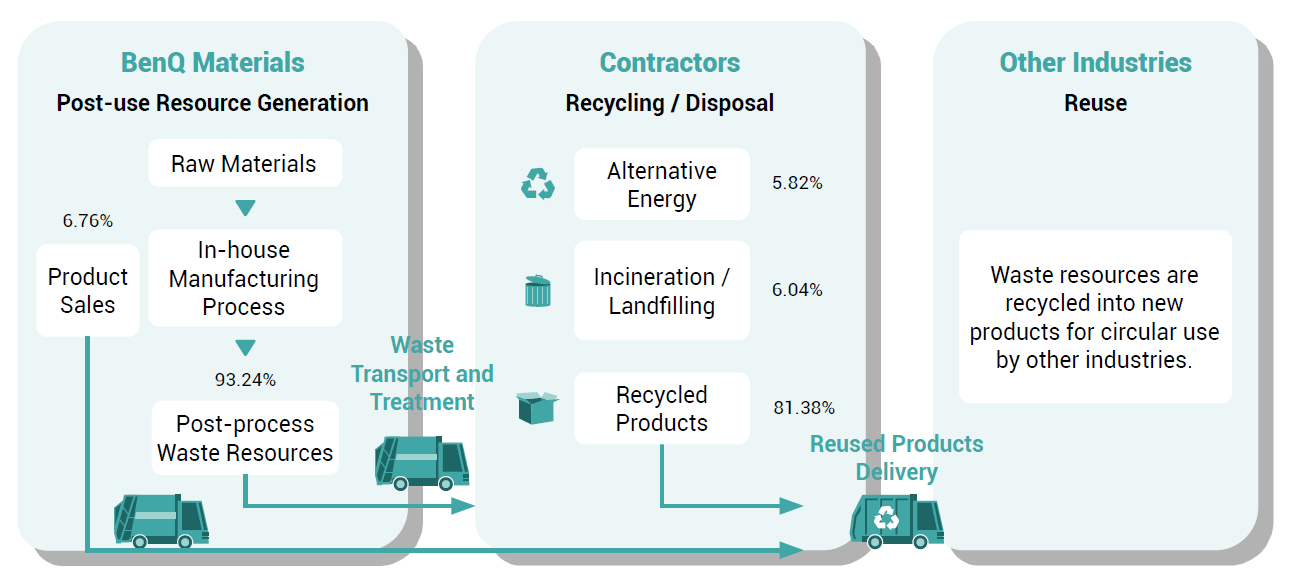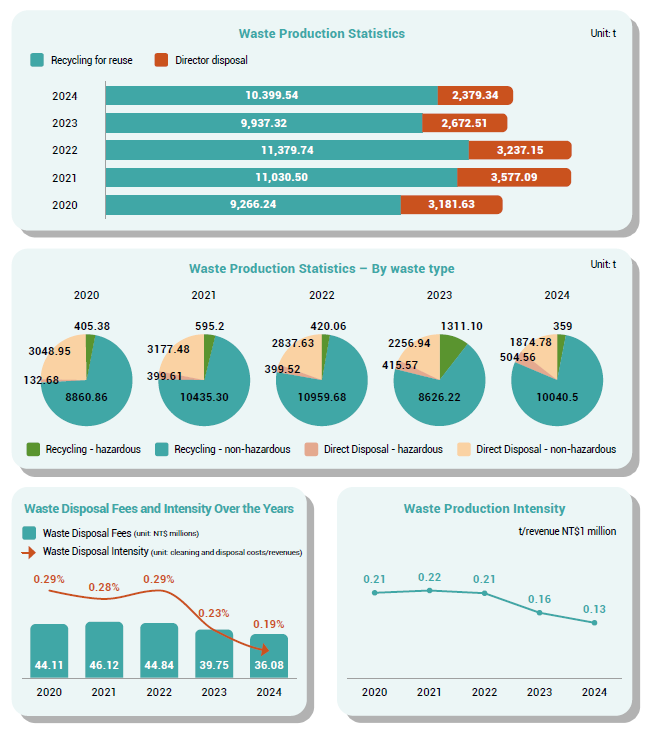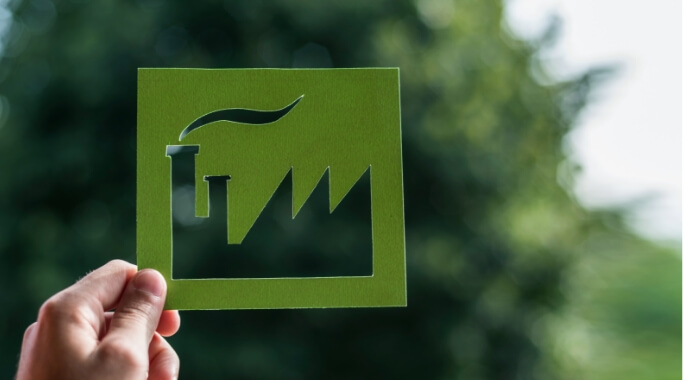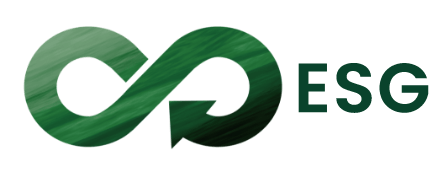Circular Economy
The waste generated during business operations must be properly managed, as improper disposal can cause severe environmental pollution and negatively impact the quality of life of local communities. BenQ Materials is committed to minimizing the environmental impact of its products throughout their life cycle—from raw material selection, manufacturing, storage, transportation, and use to disposal. The company actively promotes responsible production and pursues a “zero production waste” goal through reduction and circular management strategies.
All major operational sites are certified under the ISO 14001 Environmental Management System, ensuring that environmental issues are systematically managed, effectively controlled, and continuously improved. Each year, BenQ Materials sets concrete environmental improvement targets and implements waste reduction and resource optimization strategies to lower environmental impact and reduce waste generated during production.
At the source, BenQ Materials actively evaluates strategies to minimize resource consumption (Reduce), optimizes material usage parameters and process technologies, and collaborates with supply chain partners to enhance material utilization efficiency—reducing waste generation at its root.
In alignment with circular economy principles, BenQ Materials prioritizes material recycling and energy recovery through meticulous resource sorting and classification. Waste materials that can no longer be used in-house are handled by qualified waste processors for proper reuse, with incineration or landfill reserved only as a last resort when recycling is not feasible. This ensures minimal environmental impact.
Through these initiatives, BenQ Materials not only reinforces its environmental responsibility but also advances toward a more sustainable production model—achieving a balance between environmental protection and economic development.

Waste Production Volume
The types of waste generated at each BenQ Materials facility can be classified into seven categories: general industrial waste, potassium iodide, membrane waste, waste liquids and adhesives, recyclable waste liquids, solid waste, and recyclable resources.
In 2024, the total waste generated was 12,778.87 metric tons, representing an increase of 169 metric tons compared to the previous year. The waste recycling and reuse rate in 2024 was 81.38%, an increase of 2.57% from the previous year. The waste removal and disposal cost in 2024 was approximately NT$36.08 million, accounting for 0.19% of revenue.
In 2024, the waste direct disposal intensity (direct disposal waste weight per NT$ million in revenue, excluding recycling) was 0.13

In 2024, the recycling and reuse rateof waste reached 81.38%, showinga 2.57% improvement comparedto 2023. The efficiency of PSA adhesive distillation units was further optimized, enhancing the distillation quality and characteristics. The recovered material was fully reintegrated into the production process, achieving 100% substitution of virgin materials, which effectively reduced raw material procurement and created economic value.
Plastic Raw Materials Disclosure (Products only; packaging excluded)
BenQMaterials products contain
thermoplastic plastic materials. In 2024, the
total amount of plastic raw materials used in products was
12,316.72 metric tonnes; the
share sourced from recycled materials was
0.4%.
Scope: This disclosure covers thermoplastic materials used within products only and excludes packaging materials. (Unit: metric tonnes)
 }})












